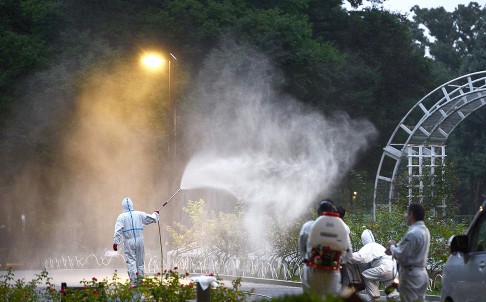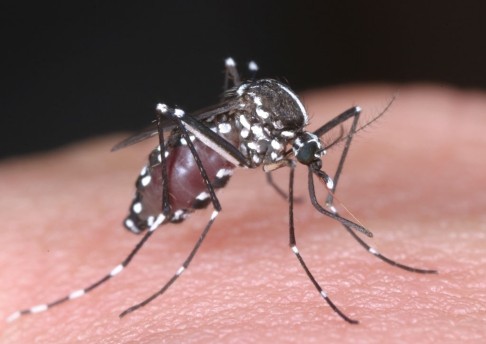- Joined
- Sep 19, 2013
- Messages
- 291
- Points
- 0
Japan confirms 22 people affected by first dengue fever outbreak since 1945
New cases of the mosquito-borne disease reported today involve suffers believed to have fallen ill after visiting Tokyo’s Yoyogi Park, which is popular with residents and tourists.
PUBLISHED : Monday, 01 September, 2014, 12:55pm
UPDATED : Tuesday, 02 September, 2014, 7:54am
Agence France-Presse in Tokyo

A worker sprays pesticide in Tokyo's Yoyogi Park last week following the discovery of people infected with dengue fever. Photo: AP
An outbreak of mosquito-borne dengue fever in Japan – the first since the second world war – has affected 22 people, the nation's health ministry confirmed on Monday.
The cases involve teenagers or people in the early 20s, who are believed to have visited Tokyo’s huge Yoyogi Park, one of the major green areas of the city, next to Meiji Shrine, which is popular with young Japanese and performance artists.
The park, one of the largest open spaces in central Tokyo, is thought to be the source of the disease, which is transmitted by the bite of a mosquito infected with the dengue virus.
Tokyo officials have now sprayed about 800 litres of pesticide throughout the park in an attempt to kill off the insects.
None of those found to have contracted dengue is in a life-threatening condition, officials have said.
The last infection of dengue fever in Japan was in 1945, although there are about 200 cases reported annually among Japanese people, who develop the disease while travelling abroad, mainly in Southeast Asia.
Dengue fever is not transmitted directly from person-to-person and symptoms range from mild fever, severe headache, pain behind the eyes, muscle and joint pain, skin rash to incapacitating high temperatures, said the World Health Organisation.
Occasionally the infection develops into a potentially lethal complication called severe dengue.
There is no vaccine or any specific medicine to treat dengue and patients should rest, drink plenty of fluids and reduce the fever using paracetamol, it says.
The disease is carried by the tiger mosquito, which is endemic to Japan.

Dengue has been spreading in recent years worldwide, with 50 million to 100 million infections a year in more than 100 countries. The WHO says that before 1970 only nine countries had experienced dengue epidemics.
Meanwhile, shares in Japan’s pesticide maker, Fumakilla, closed up 22.8 per cent at 430 yen on the Tokyo Stock Exchange. That follows a nearly 25 per cent rise one day last week.
Fumakilla set a new 52-week high during today's trading, with its share price up more than 49 per cent over the period, the Financial Times reported session
